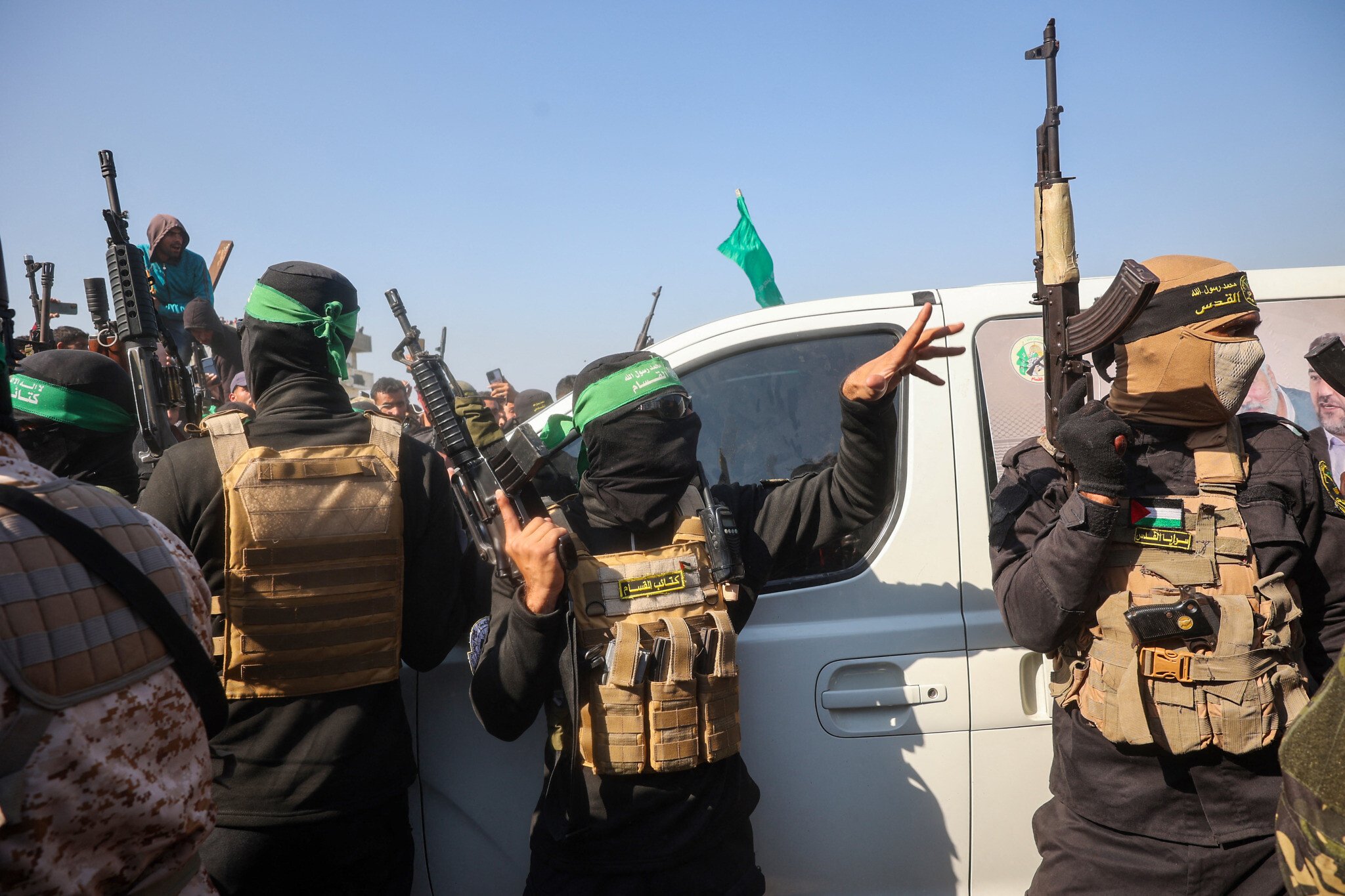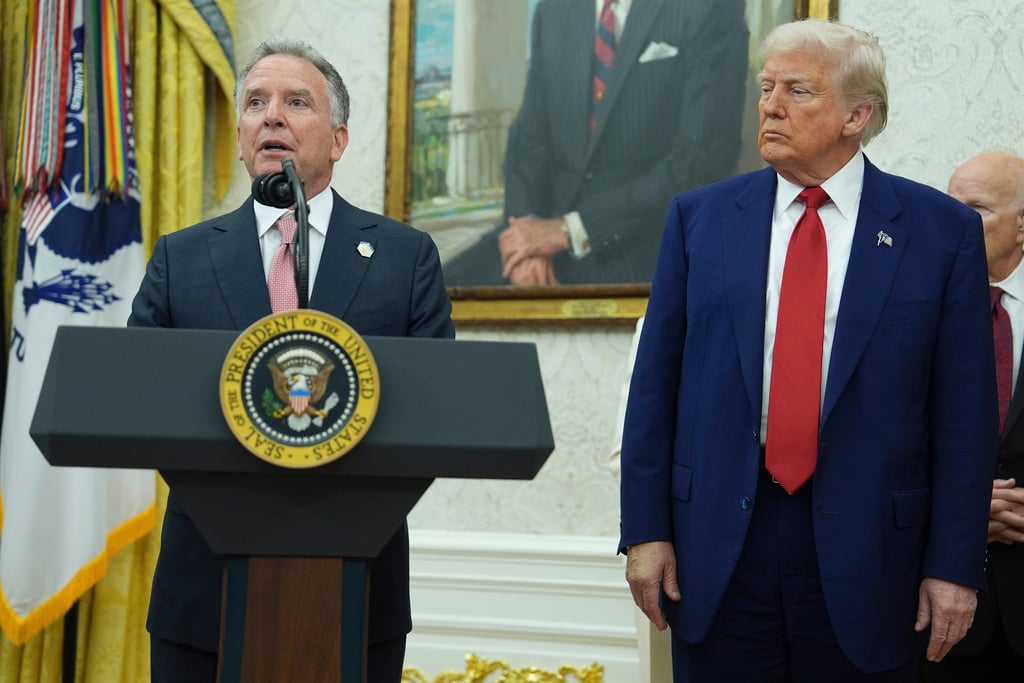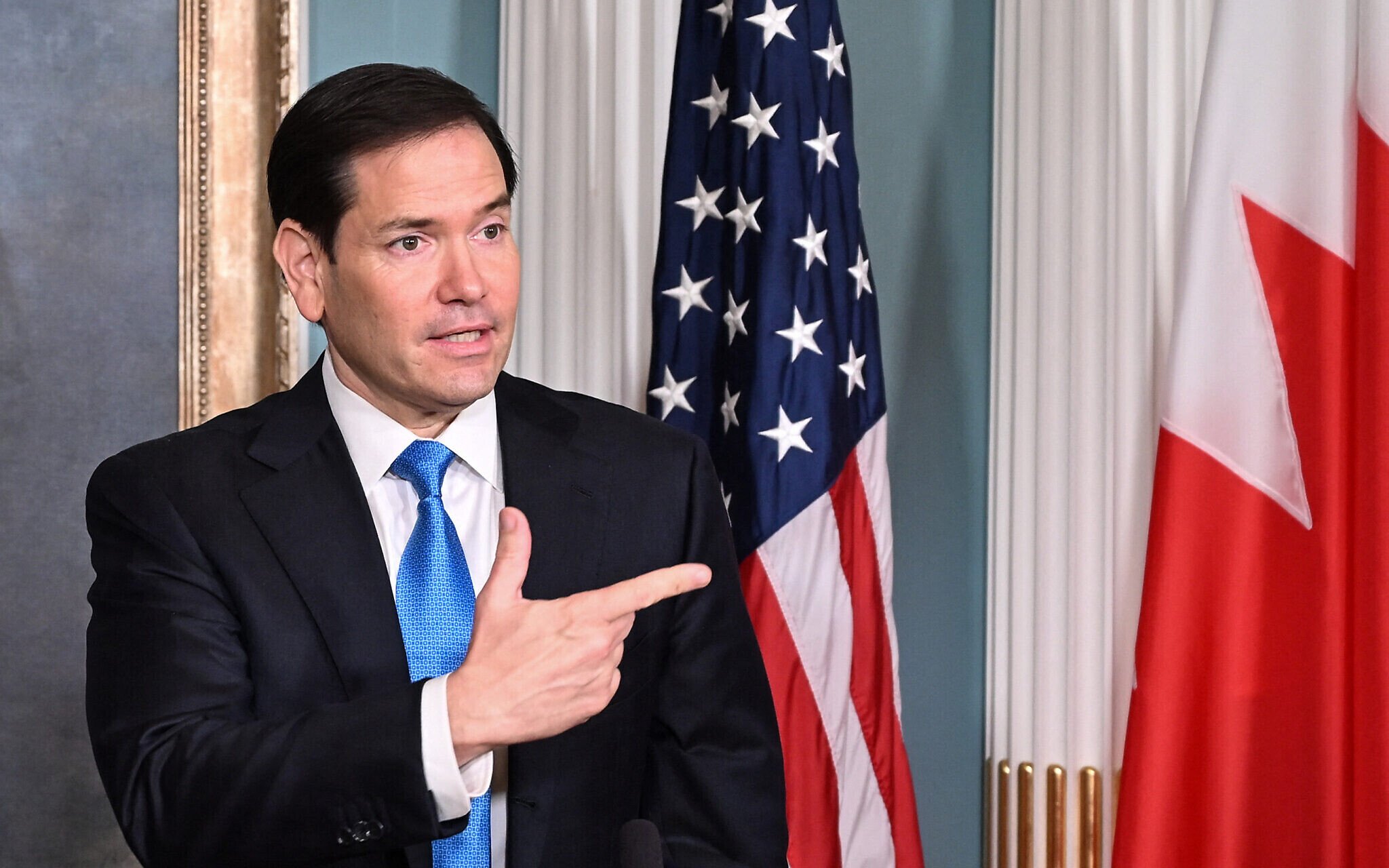



Hamas officials expressed surprise on Saturday at US President Donald Trump’s accusation that the group “didn’t really want” to reach a ceasefire and hostage release deal in Gaza.
Trump made the allegation on Friday, a day after Israeli and American teams left indirect negotiations with Hamas in Qatar that had lasted nearly three weeks.
“Trump’s remarks are particularly surprising, especially as they come at a time when progress had been made on some of the negotiation files,” Hamas’s Taher al-Nunu told AFP.
“So far, we have not been informed of any issues regarding the files under discussion in the indirect ceasefire negotiations,” he added.
Nunu, who is close to Hamas’s most senior political officials, said he was “surprised” that Israel and the US had left the talks.
Announcing the recall of US mediators on Thursday, Trump’s special envoy Steve Witkoff accused Hamas of not “acting in good faith.”
Though not part of the Hamas negotiating team, Hamas politburo member Izzat al-Rishq insisted the group had shown “flexibility” in the talks.
“The American statements deliberately ignore the real obstructionist to all agreements — Netanyahu’s government, which continues to place obstacles, deceive, and evade commitments,” he said.
Both officials called on the US to be more even-handed in its role as mediator in the quest for a ceasefire after more than 21 months of fighting.
“We call for an end to the US bias in favor of Netanyahu, who is obstructing any agreement,” Nunu said.
While Washington and Jerusalem fumed at Hamas over the response it submitted Thursday to the latest proposal for a 60-day Gaza truce and hostage release deal, Egypt and Qatar took a more nuanced approach. They indicated that the Hamas response indeed contained too many requests for changes to the proposal, but maintained that the gaps were bridgeable, an Arab diplomat and a source involved in the mediation effort told The Times of Israel on Friday.
Trump painted a far more bleak outlook and appeared to even say the US may not be able to secure the return of the remaining 50 hostages, 20 of whom are believed to still be alive.
“I said this was going to happen,” Trump told reporters, claiming to have predicted the current impasse.
“We got a lot of hostages out. But when you get down to the last 10 or 20, I don’t think Hamas is going to make a deal because that means they have no protection. And basically that’s what happened,” he said.
“I think what’s going to happen is they’re going to be hunted down,” Trump continued. “It [has] gotten to a point where [Israel is] going to have to finish the job.”
Falling quickly in line, Prime Minister Benjamin Netanyahu’s office issued a statement saying Jerusalem and Washington were “considering alternative options to bring our hostages home.”
The statements have caused Hamas to prepare itself to fend off possible military operations aimed at rescuing the remaining hostages, London-based Arabic daily Asharq Al-Awsat reported on Saturday.
Hamas sources on the ground in Gaza told the Saudi outlet that the terror organization was taking additional precautionary measures to undermine efforts by Israeli special forces or others to rescue the hostages.
For example, Hamas has reinstated a policy to kill hostages if captors believe that Israeli forces are approaching. The policy had been canceled since the most recent ceasefire came into effect in March, the sources said.
The sources said Hamas is confident that such operations, if attempted, would not succeed.
Eight hostages have been rescued alive from captivity by troops. The bodies of 49 have also been recovered, including three mistakenly killed by the Israeli military as they tried to escape their captors, and the body of a soldier who was killed in 2014.
The rest of the nearly 200 hostages set free were released as part of the ceasefire deals.
US Secretary of State Marco Rubio told former hostages and hostage families on Friday in Washington that the Trump administration needs to “rethink” its strategy regarding solving the war in Gaza, after being unable to end the conflict since coming into office in January, Channel 12 news reported, citing two unnamed sources who took part in the meeting.
Rubio said it was necessary to “come to the president with new options” on strategy regarding the war, the report quoted him as saying, without detailing what those options may be.
The IDF has been fighting the terror group for nearly 22 months, and Israeli officials had asserted that Trump’s entry to the Oval Office would allow for the IDF to deliver a knockout blow.
Trump allowed Israel to exit the previous hostage deal in March, instead of entering a second potential phase that would have included a permanent end to the war.
Israel then launched and is now nearing the conclusion of a new offensive aimed at occupying 75 percent of the Strip in order to pressure Hamas.
For nearly three months, Israel blocked all aid from entering the Strip, in what aid organizations say helped create the current hunger crisis.
The US then helped Israel establish the Gaza Humanitarian Foundation, which was designed to try and box Hamas out of the aid distribution process when Israel finally began to allow aid again into Gaza in late May. But GHF’s work was quickly marred by near-daily reports of deadly shootings of Palestinians seeking to pick up boxes of food.
The organization still touts its delivery of roughly 90 million meals, but the boxes of aid it distributes are dry food products that need to be prepared elsewhere in the Strip, where clean water, cooking gas and kitchen equipment are increasingly scarce.
Moreover, GHF doesn’t track who is picking up its aid, so there is no way to confirm that Hamas operatives aren’t benefiting from it as well.
On top of the guardrails that Trump removed regarding Israel’s military campaign, the US also adopted Netanyahu’s approach for a phased hostage deal in the latest negotiations.
Hamas has offered to release all of the hostages in one batch in exchange for Israel agreeing to permanently end the war, but Netanyahu has refused, arguing that doing so would leave Hamas in power.
Instead, the sides have been engaged in months of painstaking negotiations during which Hamas has agreed to release roughly half of the hostages in exchange for a temporary 60-day ceasefire, but in return has demanded a long list of conditions that aim to prevent Israel from resuming fighting even after the truce expires.


